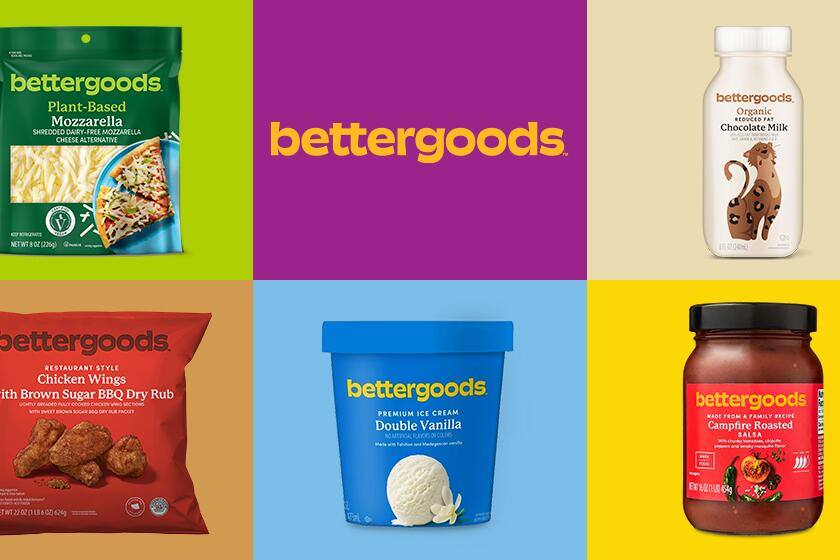Infant formula goes organic
In a world of organic dog food and pesticide-free botanical bathing potions, infants whose mothers could not or chose not to breast-feed seemed out of luck. Although organic toddler formula has been available for some time, the organic food market has had no answer for parents wishing to nourish an infant without exposing the child to the antibiotics, pesticides and growth hormones used in cows and their feed.
No more. Starting in the fall, West Coast consumers will be able to buy the first organic infant formula approved by the Food and Drug Administration and certified organic by the U.S. Department of Agriculture. Horizon Organic Infant Formula with Iron is produced from milk products untouched by growth hormones, antibiotics or pesticides and meets the FDA’s requirements as the primary source for nutrition for babies younger than 1. (Babies age 6 months to 12 months generally are ready to expand their diets to other foods.)
The newborn on the market is the progeny of Horizon Organic Holding Corp. of Boulder, Colo., one of the nation’s leading organic food producers. Horizon began developing the infant formula more than a decade ago, when company officials recognized that their high-volume production of organic cheese turned out an unused byproduct: organic whey. Since whey is the key ingredient in all dairy-based infant formulas, providing the essential carbohydrate that babies can digest, company officials reasoned that they had a unique opportunity. When the whey is mixed with organic soy, coconut and sunflower oils to provide essential fatty acids, the resulting formula mimics the mix of carbohydrates, fat and protein that make up breast milk, say company officials.
Starting in the fall, Horizon Organic’s infant formula will be sold in powdered form only, at $15.49 for a 13.2-ounce can and $29.49 for a 27.6-ounce can -- a slightly higher price than widely available non-organic infant formulas.
Company officials stress that breast milk remains the best nutrition for infants. “But when [parents] choose to use formula, they have an option they can feel good about,” says Horizon’s director of marketing, Gwen Sherer.
Since infants and babies consume larger amounts of food relative to their body mass than do adults, and since some agricultural chemicals are thought to have a toxic cumulative effect on the body, many parents are eager to feed their children organic foods.
Nationally, organic food products are the fastest-growing segment of the food industry, experts say. According to Simon Harris, organic field coordinator for the Organic Consumer Assn., milk is one of the biggest sellers among organic foods, because of consumer concern over the widespread use of growth hormones on conventional dairy farms.
In a survey conducted recently by the Roper Center for Public Opinion Research, 40% of Americans said organic food will be a bigger part of their diet within a year, and 63% said they buy organic food and beverages at least sometimes.
Nationwide, organic foods and beverages account for 2% of the overall food market. In the baby-food market, organics represent 4.5% of the total.
“This really is an unmet consumer need: It has not been an option for parents,” says Sherer. With an organic formula soon to be available, Sherer adds, parents will have the “choice of an infant formula that doesn’t have the unknown in it.”
However, some doctors note that non-organic formulas have been marketed for decades and have been shown to be safe for infants. “The organic issue is probably more a bit of marketing than a necessity,” said Dr. John J. Mangoni, a pediatrician in Pasadena.
Mangoni said regular infant formulas, made from cow’s milk proteins that have been processed so they’re easier to digest, don’t contain significant amounts of antibiotics or other chemicals. He likened that amount to what a breast-feeding mother would pass to her child if she drank regular milk herself.
*
Times staff writer Jane E. Allen contributed to this article.
More to Read
Eat your way across L.A.
Get our weekly Tasting Notes newsletter for reviews, news and more.
You may occasionally receive promotional content from the Los Angeles Times.







